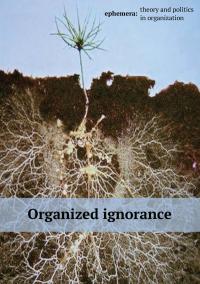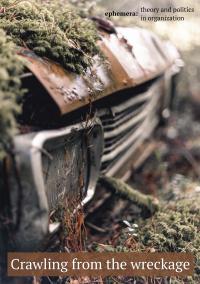review
A posthumanist approach to practice and knowledge
Introduction
In an increasingly vibrant research landscape, where practice studies has become a well-established stream of research in management and organization (Nicolini, 2012; Nicolini and Monteiro, 2017), it is no surprise to see a second edition of this influential book. Considering the significance of Gherardi’s contribution, I focus primarily on the similarities and differences between the first and second editions, showing how the latter offers a view of the state of the art of Practice Approach within the recent debate in social studies.
Re-thinking the datafied society through the anonymity kaleidoscope
Anonymity is a crucial issue in debates concerning technology, politics, and data justice. A new anthology offers fundamental insights into what anonymity is and why it matters. The book of anonymity focuses on the possibilities connected to and created by anonymity, how it is produced, its outcomes, and its potentials. The book looks at anonymity as a ‘mode of being and knowing’ [23], moving beyond a purely technical definition.
Shiny new archives? On the politics, history, and ethics of archives under the condition of big data
With some vigour, American artist and information studies scholar Johanna Drucker clarifies: ‘the notion of data as “given” and thus self-evident is patently false – all data are constructed’ [Visualization, 563]. Since data are not just given, the questions then are who produces data, who decides what data are stored, maintained, and deleted, who profits and who is discriminated in and through data sets? The glossary Uncertain archives: Critical keywords for big data (2021) sets out to tackle these questions.
Economic theology: a question of academic primacy? A response to Beltramini
I would first like to thank Enrico Beltramini and the editors of ephemera for giving me the opportunity to respond to the review, which I found to be a very thoughtful and balanced piece. The review raises a number of substantial issues. Most importantly, it laments a supposed absence of meta-theoretical reflection in the Handbook. My concern is that the review’s call for meta-theory is in fact not much more than an insistence on the academic and intellectual primacy of theology over what Beltramini calls the ‘secular disciplines’ of the social sciences.
Economic theology: Is economy a subfield of theology?
Background
Almost twenty years ago, Stephen Long published Divine economy: Theology and market (2000), a book in which he attempted to engage economics from a theological standpoint. The project was complicated by a fact — Long noted in his introduction—that theologians and economists operate on completely different assumptions: economists base their work on the fact-value distinction; theologians do not (Long 2000: 3). And that is not all.
Class struggle is like a box of chocolates…
There are a number of debates that if one has the good fortune of living long enough you will find yourself getting periodically sucked back into regardless of whether you want to or not: is this particular form of social practice really art? Who’s the best footballer, Messi or Ronaldo? These debates likely will never be resolved. Therein lies much frustration for those who think the purpose of a debate is to come to a resolution.
The 15-M laboratory of democratic transformation: How a contemporary Spanish movement contested neoliberal hegemony in an impoverished democracy
Only nine years ago, in 2011-2012, history appeared to be ‘born again’ (Badiou, 2012) in the Mediterranean basin and across the world, through the Arab Spring, the ’15-M’ (or ‘Indignados’ movement) in Spain, the ‘squares movement’ in Greece, and the global Occupy movement. Today, the boisterous scenes of democratic uprisings, the contestation of neoliberalism and austerity policies, the glimpses of egalitarian ‘real’ democracy and popular aspirations to progressive change in countries such as Spain and Greece seem consigned to a remote past.
Pleasure as a political ethics of limits
One of the problems of the last few years, one of the reasons why we have missed different opportunities, is that… we had a stoic, Spartan left, which did not raise the problem of pleasure, understood as dignity for all. A left which has not reasoned differently from the religious message, which promises you a Paradise after death, because our world is a world of suffering. The message of this left is the same: we must suffer now and after the revolution we will be able to conquer happiness. And changing this culture is difficult.
Collective chronopolitics
It is always a pleasure to read what Melissa Gregg writes. Her blog Home cooked theory, where she often posted her still raw ideas, including many for this book, was a wonderful treat to read for insight on current cultural studies of work until Gregg closed it down a couple of years ago. Readers of ephemera will be familiar with Gregg’s prior work, in particular her book Work’s intimacy (Gregg, 2011), and her work on affect theory, such as The affect theory reader (Gregg, 2010), which she co-edited with Gregg Seigworth.




